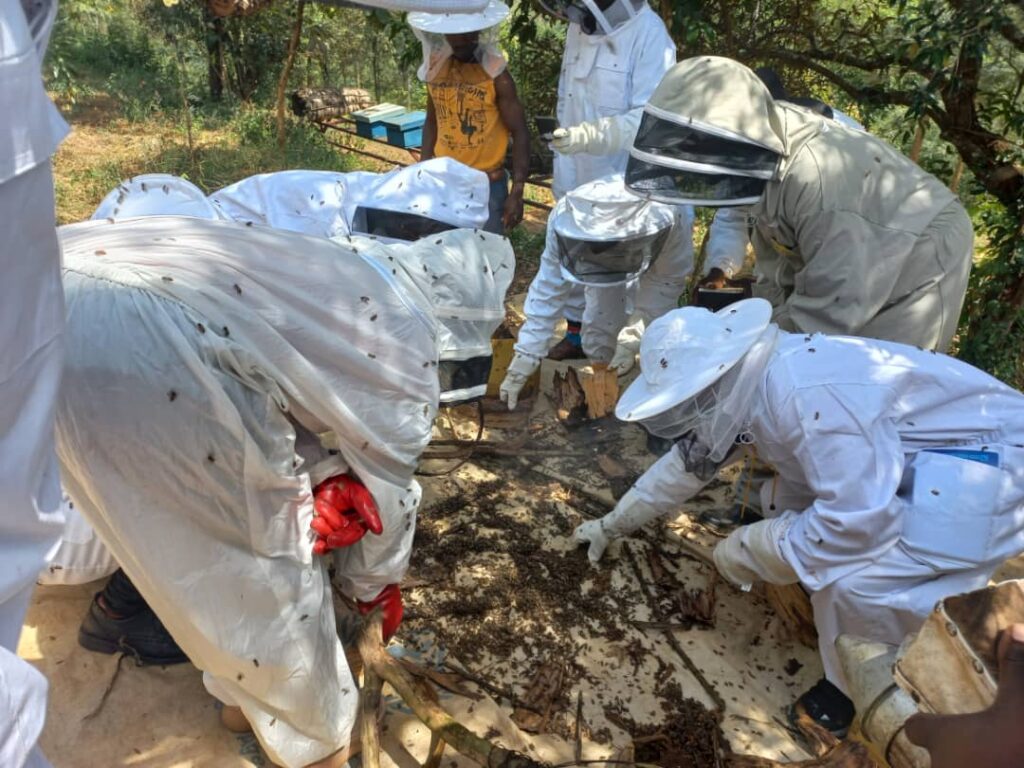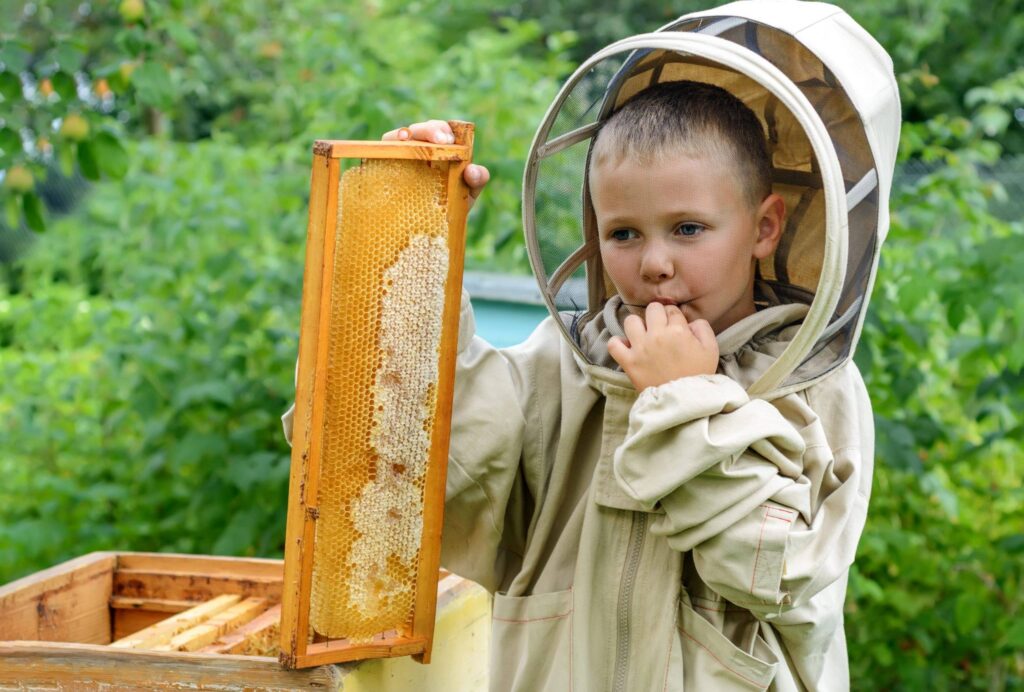The Rwandan Traditional Bee Keeping And Honey Experience
The Rwandan Traditional Bee Keeping and Honey Experience: Rwanda is a nation in East Africa renowned for its vivid culture, varied wildlife, and stunning scenery. The custom of beekeeping and honey production in Rwanda is among the most fascinating features of the country’s culture. This singular experience has been handed down through the ages and continues to play a significant role in contemporary Rwandan society. The history of beekeeping in Rwanda, the extraction method, and the significance of bees to the regional economy will all be covered in this article. We’ll also take a look at some recent efforts to maintain this age-old custom and make sure it survives for many more. Come along for a historical tour of Rwanda‘s traditional beekeeping and honey production!

In Rwanda, beekeeping has long been a practice, and honey plays a significant role in the country’s culture. Discover the distinctive flavor of Rwandan honey and traditional bee keeping methods and procedures with the Rwandan Traditional Bee Keeping and Honey Experience. Bees use nectar to create honey, which is a naturally occurring sweetener. It is a key bee product in Rwanda and serves as the foundation for many food and drink products worldwide.
Over 20 different varieties of honey are produced in Rwanda; some are only found in wild sources, while others are produced by beekeepers as a supplemental source of income or to sell at markets. Visitors will be able to learn about the various bee species that may be found in Rwanda and how honey is extracted from hives through this experience. Visitors will also get to sample a range of honey products made in the area and discover more about how they are made. This program provides a rare chance to learn about one of Rwanda’s most significant agricultural methods while becoming fully immersed in the country’s culture.
In Rwanda, beekeeping has a lengthy history, dating back many centuries to the use of traditional methods. A vital source of sustenance for the Rwandan people as well as a source of cash for local beekeepers, beekeeping is a significant industry in the country. This article will examine the history of beekeeping in Rwanda, covering both ancient and contemporary methods, as well as the effects the industry has had on the country’s economy over time. Along with how honey production has been utilized to generate jobs, it will also cover how nutrition in Rwanda has improved because to honey production.
Both in terms of the honey harvest and the dissemination of information about bees and their significance, traditional beekeeping provides numerous advantages to nearby communities. It is a sustainable method that offers a distinctive harvesting experience while assisting in the preservation of regional ecosystems. In addition to giving local communities an important source of food, traditional beekeeping also serves to establish jobs and generates revenue for them. This essay will examine the numerous advantages that conventional beekeeping provides to nearby communities from the viewpoints of the bees and their keepers.
There are several different types of honey in Rwanda, each with distinctive qualities and flavor profiles. There is honey for everyone, ranging from the mild and sweet acacia honey to the spicy and fragrant wildflower honey. We shall examine the various varieties of honey produced in Rwanda in this article. We are going to examine the regional types produced by Rwandan beekeepers and how their tastes and aromas vary from one another. You will also discover how to build a conventional beehive with wood, banana fibers, and cow dung during this tour.
In Africa, beekeeping and the production of honey have always been dominated by men. But because to recent initiatives, women now play a bigger part in beekeeping and the production of honey. These days, women are spearheading beekeeping projects, mentoring other women, and creating networks to assist other women who want to be beekeepers. More bees are being kept and more honey is being produced, which has improved the sector as a whole. Additionally, women are promoting sustainable beekeeping techniques, which can aid in the preservation of regional ecosystems. Additionally, because these activities are frequently the only accessible source of revenue in rural regions, their engagement has given women there more economic opportunities. The trend towards more female participation presents an opportunity to establish fairer working conditions for all sector participants.

The tradition of beekeeping in Rwanda dates back many centuries and is a significant aspect of the nation’s history. It is a vital component of Rwanda’s economy, supporting sustainable agriculture and giving thousands of farmers a living while also assisting in environmental protection. Beekeeping has been actively promoted in Rwanda in recent years, both locally and through government initiatives. There are several ways to become involved in the preservation of this distinctive culture and learn more about it if that’s of interest to you. There are several ways for people to become involved in Rwandan beekeeping culture, ranging from taking beekeeping workshops to helping with neighborhood organizations that support sustainable beekeeping practices.
